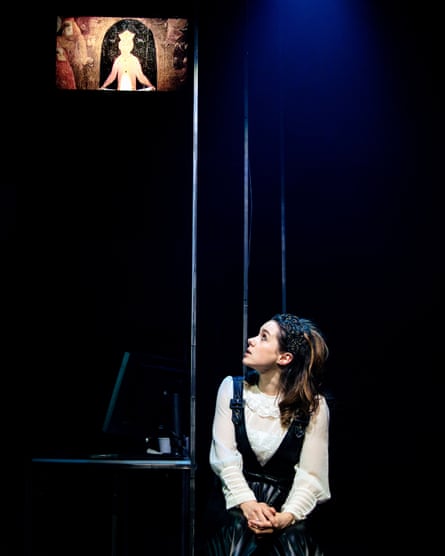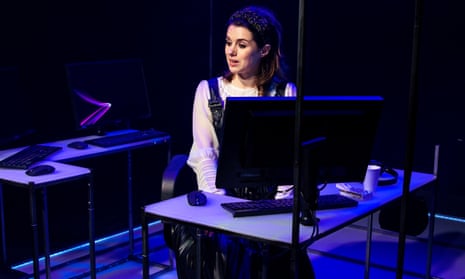‘Who owns your data?” asks Masha, the tortured voice at the centre of this monologue. Issues of data privacy and misuse are being increasingly raised but rarely show the inner workings of a Russian web brigade that orchestrates disinformation campaigns through anonymous online commentary.
That is what Masha (Rachel Redford) does in Cat Goscovitch’s illuminating drama, based on a true story and co-produced by the Barn and Arcola theatres. She is an English literature student turned troll in St Petersburg. Once a lover of Emily Brontë books, she is now a kind of data apparatchik, paid to gather information on Brits online and then use it to “fuck with their heads” during the EU referendum campaign of 2016.

One of the most chilling aspects of the play is just how intimately Masha comes to know people through the data she seizes, from women’s menstrual cycles to how many hours of pornography a man watches and the kind of vibrator his wife buys.
The power of data is made manifest – as Masha says, “Data, oil, gold, it’s all interchangeable now” – but more interestingly, this play shows us who is enlisted to manipulate it and why. Masha initially struggles with a pricked conscience: “We’re using Third Reich techniques,” she is told by her boss, who is comically known as Jay-Z, in relation to the propaganda methods they use. Gradually she justifies the job, which lifts her out of poverty, and builds an ideological defence. Her actions only expose Britain’s faulty democracy. She says sneeringly: “You do it yourself.”
Goscovitch’s writing is fantastically energetic, filled with eloquence and fire, even though the plot itself is uneventful, with few surprises. Redford impressively pulls off the dramatic coup of keeping us hooked despite the static elements of the play.
Nicholas Kent, who as the former artistic director of the Tricycle theatre staged a series of big-issue “tribunal plays”, gives plenty of space to Goscovitch and Redford, but his direction seems a little too reserved. Redford variously paces, sits, stands or types on a keyboard on Liz Da Costa’s office set – an assortment of desks, computers and a back-screen with occasional projections.
It is gripping, nonetheless, as political theatre intelligently funnelled through personal experience. It also brings to mind those who are at the other end of Masha’s virtual machinations and creates a certain horror at how easily they – we – are taken in and turned.
A Russian Doll was streamed for the press from the Barn theatre, Cirencester, where it runs until 12 June. Then at the Arcola theatre’s Arcola Outside venue in London.

Comments (…)
Sign in or create your Guardian account to join the discussion